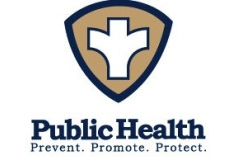Middle-Brook Regional
Health Commission
“Healthy People and Places – A Healthy Community”
Serving Green Brook, Warren, Watchung and Bridgewater
“Healthy People and Places – A Healthy Community”
Serving Green Brook, Warren, Watchung and Bridgewater
Children
